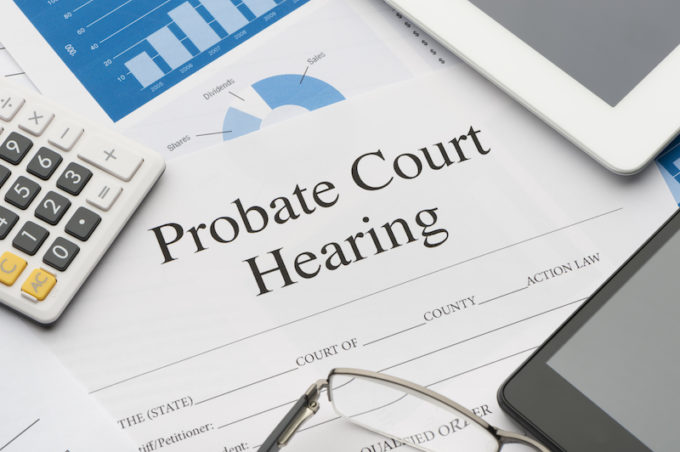Florida Probate Administration Frequently Asked Questions

Our firm routinely (daily!) handles questions related to Florida probate administration, such as the following:
What Is Florida Probate Administration?
Probate Administration is the Court-supervised process of resolving a decedent’s financial affairs.
Is Florida Probate Administration Always Required?
Not always. For many decedents, there is no requirement to open a probate estate.
A common reason probate is not required is that the decedent didn’t own any assets in his own name at the time of his death. If a decedent’s real property, bank accounts, and other assets are jointly held with another person, probate may not be required.
Interestingly, it does not matter if the decedent was wealthy or if the decedent had a Will in deciding whether probate is required.
On this subject, it is a common misconception that a Will allows you to avoid probate. In fact, the Will tells the probate Court what to do!
Who Controls the Decedent’s Assets?
The probate Court is ultimately in control of the estate. The Court will appoint a Personal Representative (executor) to handle the day-to-day duties of the estate. The Personal Representative is bound to follow the Orders of the Court and Florida law.
One job of the Personal Representative is to identify all of the decedent’s assets. This generally requires interaction with the decedent’s family, banks, and other resources.
The Personal Representative will open a bank account in the name of the probate estate, place personal property in storage, and take other steps to take charge of the decedent’s assets.
Of course, the Personal Representative must account to the Court and the heirs for the work done by the Personal Representative.
What if the Decedent had Debts?
Part of the Florida probate administration process is to identify creditors of the decedent and make arrangements to pay the decedent’s debts.
If the assets of the decedent are sufficient, this process usually does not present any problems. If the assets are insufficient to pay all of the debts, the law provides a system of priorities to determine who gets paid and how much.
By statute, it is generally the case that creditors must be paid before any heirs receive their inheritance. There are exceptions from this general rules, however, for special types of assets (such as homestead, cars, and other exempt property).
What if the Heirs Have Disagreements?
The probate Court will determine who are the legal heirs of the decedent, what inheritance (if any) each heir will receive, and related questions.
The heirs are entitled to information about the estate, including a copy of the Will and a description of how the estate assets are distributed. This information may resolve some concerns before litigation results.
What is the Purpose of a Will?
One primary purpose of the Will is to instruct the probate Court how to distribute the decedent’s estate and whom to name as Personal Representative (executor). A Will may also be used to name guardians for children, express burial wishes, and other purposes.
If the decedent did not create a Will, the Court will apply Florida law to answer questions regarding who will serve as Personal Representative, who will inherit the decedent’s estate, and similar questions.
What if the Decedent Owned Real Estate?
The Personal Representative (with the approval of the probate Court, if necessary) will distribute the real estate as part of the decedent’s estate. The Court also has power to cause real estate to be sold in certain circumstances.
What if the Decedent Did Not Have Much?
Florida law provides for ‘summary administration’ if the assets of the estate are less than $75,000 or if the decedent died more than 2 years ago.
With summary administration, there is no Personal Representative (executor) appointed. Instead, the Court simply issues an Order directing the distribution of the estate.
In addition, Disposition Without Administration is available if the assets of the decedent are valued at less than the funeral expenses and certain medical expenses. This process may be completed with the help of the Clerk of Court (without a lawyer!).
How Long Does Probate Take?
Formal probate generally takes around 6 months. Summary administration often is completed in a month or less.
If IRS issues or litigation is involved, estate administration may take much longer – even years.
How Can Litigation Result?
Yes. Lawsuits may be brought by an estate or against an estate.
For example, a lawsuit may result if the heirs disagree about inheritance issues, if the heirs believe the Personal Representative (executor) did not act correctly, or if a third party believes they are owed money by the estate.
Do I Have to Have an Attorney?
Generally, the law requires the Personal Representative (executor) to have an attorney. There are a few limited exceptions to this rule.










